SIP Trunking Solutions Tailored for Local Government Agencies
Local government agencies face unique challenges in maintaining reliable, cost-effective communication systems while serving constituents efficiently. Session Initiation Protocol trunking offers municipalities a powerful solution for upgrading outdated telephony infrastructure. This technology enables public sector organizations to enhance service delivery while significantly reducing operational expenses.
DIDlogic specializes in providing IP-based communication solutions tailored specifically for government entities. Our systems help municipal organizations meet their unique requirements for security, reliability, and fiscal responsibility.
What Are Voice over IP Solutions for Municipal Organizations?
Government telecommunications systems often rely on aging infrastructure that requires substantial maintenance while delivering limited functionality. Many municipal offices continue operating legacy phone systems that cannot integrate with modern digital tools, creating workflow inefficiencies and hindering constituent service.
IP-based telephony converts voice signals into digital data packets transmitted over internet connections rather than traditional copper telephone lines. This fundamental shift delivers several immediate advantages:
- Elimination of physical phone line limitations
- Significant cost reductions for local calling and long-distance services
- Integration capabilities with digital government systems
- Enhanced flexibility for remote work and distributed teams
- Scalability to accommodate changing departmental needs
County administrators, city managers, and other public sector leaders increasingly recognize these practical benefits. Modernizing communication infrastructure through internet protocol solutions helps fulfill obligations to taxpayers by improving service delivery while reducing operational costs.
Core Benefits for Government Entities
Budget Optimization and Fiscal Responsibility
Municipal organizations face constant pressure to maximize taxpayer dollars while maintaining essential services. Traditional Public Switched Telephone Network (PSTN) systems require dedicated lines for each connection, resulting in substantial monthly expenses regardless of actual usage.
Digital voice transmission through internet protocol dramatically reduces these costs through:
- Elimination of per-line charges
- Reduced or eliminated long-distance fees
- Consolidation of voice and data networks
- Lower maintenance requirements
- More predictable monthly expenses
A mid-sized municipal government typically saves between 30-60% on telecommunications expenses after implementing internet-based telephony. These savings can be redirected toward essential community services or property tax reductions.
Simplified Compliance and Security
Government agencies must adhere to strict regulations regarding communication security and records retention. Modern communication platforms provide enhanced capabilities for:
- Call encryption and secure transmission
- Detailed record-keeping and call logging
- Integration with document management systems
- Access controls and authentication protocols
- Network monitoring and threat detection
DIDlogic’s solutions are specifically engineered to meet public sector compliance requirements, including CJIS (Criminal Justice Information Services) standards when applicable. Our implementation team ensures all security configurations align with government regulations at every level.
Continuity of Government Operations
Municipal services must remain operational during emergencies, natural disasters, and other disruptions. Traditional telephony systems often fail during power outages or facility damage, potentially cutting off critical communication channels precisely when they’re most needed.
Cloud-based voice solutions provide robust contingency options:
- Geographic redundancy across multiple data centers
- Automatic failover to backup systems
- Call routing to mobile devices or alternate locations
- Uninterrupted 911/emergency services access
- Remote administration capabilities
These capabilities ensure that constituent services remain available during crisis situations, maintaining public safety and essential government functions under adverse conditions.
Enhanced Constituent Service
Citizens expect responsive, efficient government services. Modern communication technology helps municipal organizations meet these expectations through:
- Intelligent call routing to appropriate departments
- Reduced wait times through efficient queuing
- Automated information services for routine inquiries
- Multiple contact channels (voice, text, web)
- Detailed analytics for service improvement
The ability to quickly connect constituents with the correct department or information significantly improves satisfaction while reducing staff workload. These efficiencies translate directly into better service delivery and public perception of government effectiveness.
Implementation Considerations for Municipal Organizations
Network Infrastructure Assessment
Before transitioning to IP-based telephony, municipal IT departments should evaluate existing network capabilities:
- Internet bandwidth capacity and reliability
- Network equipment quality and age
- Quality of Service (QoS) capabilities
- Existing security measures
- Wiring and physical infrastructure
This assessment identifies potential limitations that might affect voice quality or system performance. DIDlogic’s technical consultants can assist government IT staff in evaluating current infrastructure and recommending appropriate upgrades where necessary.
Integration with Existing Systems
Local governments typically maintain various specialized systems for different functions. Communication platforms should integrate seamlessly with:
- Emergency services dispatch systems
- Constituent relationship management platforms
- Document management systems
- Office productivity tools
- Public information portals
DIDlogic’s solution architects work directly with municipal IT teams to ensure smooth integration between voice communication systems and existing government applications, maintaining workflow continuity throughout the transition.
Training and Change Management
Public sector organizations often face challenges when implementing new technologies. Successful adoption requires:
- Comprehensive staff training programs
- Clear communication about transition timelines
- Documented procedures for common tasks
- Designated internal champions in each department
- Ongoing technical support during the adjustment period
Our implementation methodology includes dedicated training resources and change management support to ensure municipal employees can effectively utilize all system features with minimal disruption to daily operations.
Phased Implementation Approach
Government agencies typically benefit from gradual transitions rather than “flash cutover” approaches. DIDlogic recommends a phased implementation strategy:
- Assessment Phase: Evaluate current systems, document requirements, and establish transition goals
- Pilot Phase: Implement the solution in a single department or location
- Optimization Phase: Address any issues identified during the pilot
- Expansion Phase: Gradually transition additional departments
- Completion Phase: Decommission legacy systems after successful transition
This measured approach minimizes risk while allowing for adjustments based on actual operational experience within the specific government environment.
Technical Specifications
DIDlogic’s municipal voice solutions include:
- Session Border Controllers (SBCs): Enterprise-grade security and protocol management
- Redundant Connection Paths: Multiple carrier connections for reliability
- Quality of Service (QoS): Traffic prioritization for optimal voice quality
- Call Recording: Secure, compliant recording capabilities for required departments
- Detailed Analytics: Usage patterns, call volumes, and service metrics
- Emergency Services Compliance: E911 capabilities and location services
- Directory Integration: Synchronization with government directory services
- Disaster Recovery: Automatic failover and business continuity features
Our solutions architects configure these components based on each municipality’s specific requirements, ensuring the right balance of functionality, security, and cost-effectiveness.
Regulatory Considerations for Government Implementations
Municipal organizations must navigate specific regulatory requirements when implementing communication systems:
E911 Compliance
Enhanced 911 services require accurate location information for emergency calls. IP-based telephony implementations must maintain this capability, particularly for distributed government offices and remote workers. DIDlogic’s solutions include robust E911 support with:
- Precise location mapping for each endpoint
- Automatic location updates for mobile devices
- Direct integration with Public Safety Answering Points (PSAPs)
- Compliance with state-specific emergency service regulations
- Testing and verification procedures
Records Retention Requirements
Government communications often fall under specific records retention policies. Modern voice systems support these requirements through:
- Secure call recording with encryption
- Integration with records management systems
- Automated retention policy enforcement
- Compliance with state and federal regulations
- Audit capabilities for verification
Accessibility Standards
Public sector organizations must ensure communication systems remain accessible to all citizens, including those with disabilities. DIDlogic’s solutions support accessibility through:
- TTY/TDD compatibility
- Visual notification options
- Screen reader compatibility
- Multiple communication channels
- ADA compliance features
These capabilities ensure government services remain available to all constituents regardless of ability status.
Implementation Process with DIDlogic
1. Needs Assessment and Requirements Gathering
Our government solutions team begins by understanding your specific requirements:
- Current system inventory and capabilities
- Pain points and operational challenges
- Budget constraints and funding cycles
- Compliance requirements specific to your jurisdiction
- Long-term communication strategy goals
This comprehensive assessment forms the foundation for a tailored solution that addresses your unique municipal needs.
2. Solution Design and Proposal
Based on assessment findings, our engineers develop a customized solution including:
- Detailed technical specifications
- Implementation timeline and milestones
- Training and support plans
- Budget projections and ROI analysis
- Migration strategy for minimal disruption
The proposal undergoes review with key stakeholders to ensure alignment with municipal objectives and operational requirements.
3. Pilot Implementation
A controlled initial deployment allows for system validation:
- Implementation in a single department or location
- Thorough testing of all features and integrations
- User feedback collection and adjustments
- Performance optimization
- Documentation refinement
This phase confirms the solution meets all requirements before wider deployment.
4. Full Deployment and Training
Once the pilot phase validates the solution, full implementation proceeds:
- Phased rollout across departments
- Comprehensive user training sessions
- Administrator training for internal IT staff
- Documentation distribution
- Help desk preparation
Our implementation specialists remain on-site during critical transition periods to ensure smooth adoption.
5. Ongoing Support and Optimization
DIDlogic provides continuous support after implementation:
- 24/7 technical assistance
- Regular system updates and security patches
- Quarterly service reviews
- Usage analytics and optimization recommendations
- Consultation on emerging technologies
This ongoing partnership ensures your communication systems continue meeting municipal needs as technology and requirements evolve.
Frequently Asked Questions
How does IP-based telephony improve disaster preparedness for local governments?
IP-based telephony strengthens local government disaster preparedness through:
- Geographic Redundancy – Services distributed across multiple data centers prevent single-point failures
- Automatic Failover – System instantly redirects communication traffic to backup systems without manual intervention
- Flexible Routing – Calls can redirect to alternate locations, mobile devices, or home offices during evacuations
- Remote Management – IT staff can maintain systems from anywhere with internet access
- Mobile Integration – Essential personnel receive office calls on mobile devices, ensuring leadership remains accessible
- E911 Continuity – Emergency service access continues with accurate location information during system disruptions
- Power Independence – Service continues functioning through backup connections even during power outages
- Crisis Scalability – System can quickly expand to handle surge in call volumes during emergencies
What security measures protect government communications in IP-based systems?
- End-to-End Encryption – Voice and data traffic is encrypted throughout transmission, preventing unauthorized interception or eavesdropping
- Secure Authentication – Multi-factor authentication and role-based access controls ensure only authorized personnel can access or modify the system
- Network Segregation – Voice traffic operates on separate VLANs from regular data traffic, creating isolation that prevents cross-contamination risks
- Session Border Controllers – Specialized hardware monitors and manages all sessions crossing network boundaries, blocking malicious traffic and preventing fraud attempts
- Intrusion Detection – Continuous monitoring identifies and alerts administrators to suspicious activities or potential breach attempts
- Compliance Frameworks – Systems implement security controls aligned with government requirements like FedRAMP, CJIS, and FISMA standards
- Regular Security Audits – Scheduled penetration testing and vulnerability assessments identify and address potential weaknesses
- Fraud Prevention – Advanced algorithms detect and block suspicious calling patterns or unauthorized international connections
- Physical Security – Data centers hosting government voice services maintain strict physical access controls and environmental protections
- Disaster Recovery – Encrypted backups and redundant systems ensure data isn’t lost during security incidents
Can our municipality keep existing phone numbers when transitioning?
Yes, your municipality can keep all existing phone numbers when transitioning to an IP-based communication system. This process, called number porting, is protected by federal regulations that guarantee your right to retain your numbers when changing service providers.
The number porting process typically works as follows:
- Your new provider (like DIDlogic) will request authorization from your municipality to initiate the transfer
- You’ll need to provide copies of recent phone bills to verify ownership of the numbers
- Your new provider manages all communication with your current carrier
- The transfer is scheduled for a specific date, usually during low-traffic hours
- On the scheduled date, calls begin routing through the new system automatically
This seamless transition preserves continuity for constituents who already know your established contact numbers. It also eliminates the considerable expense and confusion of updating printed materials, websites, business cards, vehicle graphics, and public information with new phone numbers.
The porting process typically takes 2-4 weeks for standard business lines. Emergency service numbers and specialized government lines may require additional verification steps but can still be transferred successfully with proper planning.
How does budgeting work for IP-based communication services?
Most municipal organizations transition from capital-intensive equipment purchases to operational expense models with predictable monthly costs. This shift often aligns better with government budgeting processes. DIDlogic offers flexible payment options designed specifically for public sector budgeting cycles, including annual payment plans that align with fiscal years.
What internet bandwidth requirements should our municipality consider?
When considering internet bandwidth requirements for your municipality’s IP-based phone system, several factors come into play:
Basic Voice Requirements:
- Each concurrent call typically requires 85-100 Kbps using standard codecs
- A 50-person office might need approximately 5 Mbps dedicated to voice traffic, assuming 50% concurrent usage
Quality Factors More Important Than Raw Speed:
- Connection stability and consistency matter more than maximum bandwidth
- Latency should remain under 150ms for optimal voice quality
- Jitter (variation in packet delivery timing) should stay below 30ms
- Packet loss should not exceed 1%
Additional Considerations:
- Implement Quality of Service (QoS) to prioritize voice traffic over other data
- Account for peak usage periods when multiple departments are simultaneously active
- Consider dedicated internet connections separate from public-facing networks
- Factor in growth projections and seasonal demand fluctuations
Bandwidth for Additional Features:
- Video conferencing requires 1-2.5 Mbps per stream
- Screen sharing adds approximately 1 Mbps per active share
- Voicemail-to-email and faxing features require minimal additional bandwidth
Before implementation, DIDlogic would conduct a network assessment to evaluate your existing infrastructure, measure current utilization patterns, and provide specific recommendations based on your municipality’s unique call volume and feature requirements.
Ready to Modernize Your Municipal Communications?
DIDlogic specializes in helping local governments implement secure, reliable, and cost-effective communication solutions. Our team understands the unique challenges facing municipal organizations and designs systems that enhance constituent service while reducing operational expenses.
Contact our government solutions specialists to schedule a consultation and learn how IP-based voice services can transform your communication capabilities.
Related Solutions:








